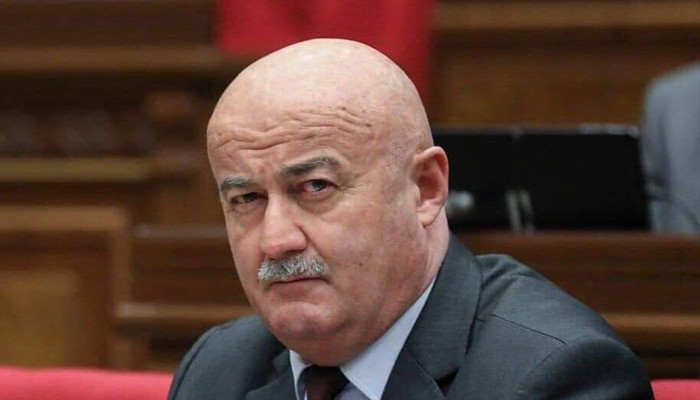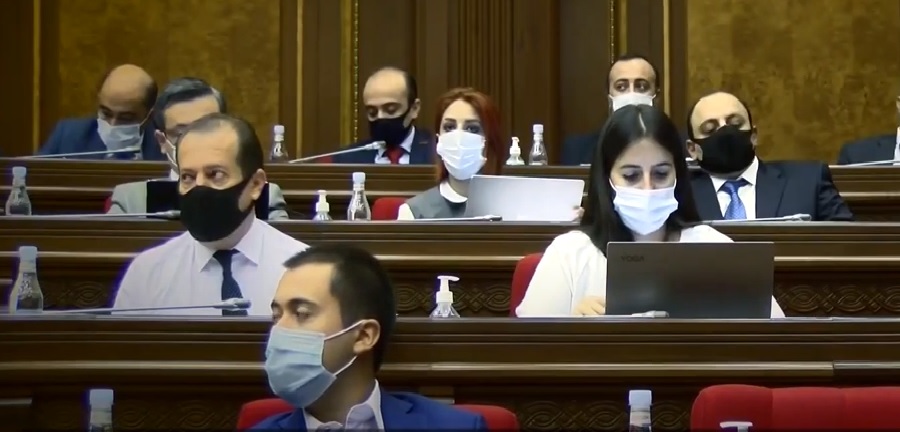The gloomy history of “A1+” TV company having lost air seems to be lightening up with a glimpse of hope that justice may be restored. The cautious optimism is based on two circumstances. The first is the fact that the RA Constitution Court secured the demand of “A1+” founder, “Meltex” LLC, to recognize the provisions of Civil Proceedings Code (clause 1 of Article 204’208) contradictory to Constitution. These are the provisions allowing the court not to reconsider the cases as new circumstances appear. Basing on this provision, the RA Court of Cassation in February last year refused the appeal of “Meltex” LLC to review the rulings of February 23 and April 23, 2004 on its suits versus the National Commission on Television and Radio. Now the “A1+” founder can re-address the Court of Cassation with the same demand and basing on the same argument, the judgment of the European Court of Human Rights of June 17, 2008 that qualified the refusal of a broadcasting license to “A1+” a violation of the right to freely impart information and ideas.
The second important circumstance is the decision of the Council of Europe Committee of Ministers to study the compliance with the judgments of the European Court of Human Rights, including the “A1+” case. The respective inquiry of the Committee was replied to by the RA Government to the effect that in July this year a broadcast licensing tender will be held in which “A1+” TV company can take part. So the governing body of the Council of Europe adopted a document calling on the Armenian authorities to ensure the effectiveness and transparency of licensing process and to inform the Committee in detail about the competition conductance and the extent to which the national judicial bodies apply methods of “A1+” legal protection.
According to the head of “Meltex” LLC Mesrop Movsesyan, the ruling of the Constitution Court came as a surprise to him, since over the past 8 years all attempts to restore justice and to bring “A1+” back on air were futile, with the Armenian judicial displaying complete lack of independence. “Nevertheless, this ruling of the Constitutional Court enables us to increase pressure on the relevant structures for the competition to be held with our participation objectively and transparently”, Mesrop Movsesyan notes.
At the same time, despite his disappointment with the judicial, the “A1+” founder intends to use the newly appearing opportunity to demand that Court of Cassation revisit its rulings on the suits, starting since 2004 up to now. The attorneys of the company work on this. According to Mesrop Movsesyan, the efforts may be in vain now too, yet, as he maintains, “we have become stronger throughout our history, and we shall continue demanding a return on air”.
It should also be noted that Armenian authorities, too, have gained strong immunity against resolutions, recommendations, judgments and other documents of international organizations, including the Council of Europe. Sometimes the insistent demands voiced in the documents shame ordinary citizens for their country. Yet the ruling elite seem quite cold-blooded in this regard.
So has anything significant been done with regard to “A1+” problem to comply with the provisions of PACE Resolutions 1609 and 1620? Nothing at all. And following the ruling of the European Court of June 17, 2009, demanding that Armenian authorities establish favorable conditions for the TV companies to come back on air, the Armenian parliament made a step in direct controversy with it. It amended the RA Law “On Television and Radio”, stipulating that broadcast licensing tenders be frozen till July 20, 2010. Moreover, the European experts in Yerevan were assured that this legislative amendment was due to prepare ground for broadcast digitalization.
The bluff will be disclosed quite soon – in July this year when this amendment expires and nothing significant will be made for digitalization of broadcasting, apart from the quite questionable concept paper having been developed. And if Armenian authorities do fulfill their promise to the CE Committee of Ministers and announce competition to grant broadcast license, the opinions of experts will be confirmed: these two had nothing to do with each other and the band on broadcast licensing had other objectives.
However, this is not very important today. The most important thing is to have the competition with “A1+” participation and for the competition results to be not questioned by the society. But will the authorities want this? Talks of the upcoming elections are becoming more and more frequent. And “A1+” lost air a year before elections of 2003, eight years ago, in early April 2002…
Ashot Melikyan,
Chairman of the Committee to Protect Freedom of Expression








